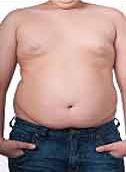- Are You Making This Expensive Thermostat Error This Winter?
- Recognizing the Signs of Hypothyroidism
- 10 Strategies to Overcome Insomnia
- Could Artificial Sweeteners Be Aging the Brain Faster?
- Techniques for Soothing Your Nervous System
- Does the Water in Your House Smell Funny? Here’s Why
- Can a Daily Dose of Apple Cider Vinegar Actually Aid Weight Loss?
- 6 Health Beverages That Can Actually Spike Your Blood Sugar
- Treatment Options for Social Anxiety Disorder
- Understanding the Connection Between Anxiety and Depression
Severe Obesity in Teens Tied to Possible Kidney Problems


Nearly one-fifth of severely obese teens have poor kidney function, a small new study suggests.
The study included 242 severely obese teens taking part in research on weight-loss surgery.
Seventeen percent of the teens had protein in their urine, which is an early sign of kidney damage. In addition, 7 percent had indications that their kidneys were working too hard, and 3 percent showed evidence of progressive loss of kidney function, the findings revealed.
Girls were more likely than boys to have protein in their urine, while those with the highest body-mass index scores (BMI) — an estimate of body fat based on height and weight — and those with reduced insulin sensitivity were more likely to show signs of progressive loss of kidney function.
The study, scheduled for presentation Friday at a National Kidney Foundation meeting in Las Vegas, is believed to be the first to examine kidney function in a large group of severely obese teens.
“We plan to continue following them up after [weight-loss] surgery procedures. It will be very important to see whether their kidney function improves after surgical weight loss,” study author Dr. Nianzhou Xiao, of Cincinnati Children’s Hospital Medical Center, said in a kidney foundation news release.
Because this study was presented at a medical meeting, the data and conclusions should be viewed as preliminary until published in a peer-reviewed journal.
“Severe obesity is increasing and now affects 4 percent to 6 percent of U.S. children and adolescents,” Dr. Beth Piraino, president of the National Kidney Foundation, said in the news release. “If untreated, obesity during adolescence is associated with a higher prevalence of chronic kidney disease and other serious conditions in adulthood, making obesity a huge public health burden,” she added.
“This study indicates that kidney dysfunction is present in childhood obesity along with such complications as high blood pressure or diabetes. Lifestyle changes such as increased physical activity and healthy eating are critical to improving the overall health of the American population and need to start with our youth,” Piraino noted.
Although the study found a connection between severe obesity and signs of kidney problems in teens, it did not establish a cause-and-effect relationship.
More information
The U.S. National Kidney Disease Education Program explains how to keep your kidneys healthy.
Source: HealthDay
Copyright © 2026 HealthDay. All rights reserved.










